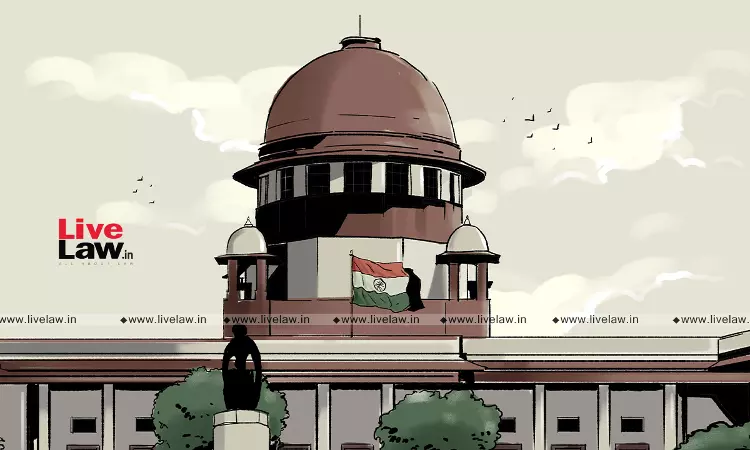Supreme Court Reverses Acquittal Of Man For Daughter-in-Law's Murder In 1997
Yash Mittal
14 Oct 2025 7:56 PM IST

The Supreme Court on Tuesday (October 14) has set aside the acquittal of a father-in-law in a case connected to the murder of his daughter-in-law, after noting that the circumstantial evidence pointing towards his guilt, including the chain of circumstances, was complete.
A bench of Justice Sanjay Kumar and Justice Alok Aradhe set aside the Madhya Pradesh High Court's Gwalior Bench order, noting that although the appeal against the acquittal carries with it a proof of innocence, the Appellate Court can overturn the order of acquittal if the same was passed upon misappreciation of the evidence.
The deceased was found dead in her matrimonial home in December 1997. The Respondent-accused initially reported that she died of accidental electrocution while ironing. However, medical evidence revealed she died of strangulation, with burn marks inflicted post-mortem.
The Sessions Court had convicted the Respondent of murder, cruelty, and destruction of evidence, while convicting the deceased's husband only for dowry death and cruelty.
In 2010, the High Court acquitted both. The State appealed, but the Supreme Court had earlier declined to interfere with the husband's acquittal, limiting the present appeal to the father-in-law.
Restoring the trial court's conviction, the judgment authored by Justice Aradhe observed that since the incident took place within the confines of the respondent's house, and medical evidence confirmed death by strangulation, coupled with proof of threats and dowry demands, the burden shifted to the respondent under Section 106 of the Evidence Act to explain facts “especially within his knowledge,” namely what transpired inside his home.
The Court said that the Respondent's attempt to give a false explanation formed a chain of circumstances, making the prosecution's case highly probable.
“From the evidence adduced by the prosecution, it has established the complete chain of circumstances namely, (i) the unnatural death of the deceased which was not accidental but homicidal as established from the medical evidence, (ii) the death occurred inside the house occupied by accused No.1 which was 11 under his control, (iii) the FIR lodged by accused No.1 himself establishes his presence in the house at the relevant time, (iv) the version of the accused No.1 that he had gone to the field is wholly unsubstantiated by any witness or independent corroboration, (v) the deliberate lodging of a false report of electrocution and an attempt to mislead the investigation, (vi) the strained relations between son of accused No.1 and his daughter-in-law and persistent demands for dowry. Each link fits seamlessly with the next, forming a continuous chain which points unerringly to the guilt of accused No.1 and excludes all reasonable hypothesis of innocence. Once the aforesaid circumstances pointing out the guilt of the accused No.1 was proved, the burden was on the accused No.1 to explain the circumstances under which the deceased died in the house occupied by him. The accused No.1 has miserably failed to discharge the aforesaid burden.”, the court said.
“In view of foregoing discussion, the prosecution has proved beyond reasonable doubt that the accused No. 1-Janved Singh caused the death of deceased by strangulation and attempted to mislead the investigation by fabricating a false story of electrocution”, the court held.
Accordingly, the State's appeal was allowed.
Cause Title: STATE OF MADHYA PRADESH VERSUS JANVED SINGH
Citation : 2025 LiveLaw (SC) 1003
Click here to read/download the judgment
Appearance:
For Appellant(s) : Mr. Harmeet Singh Ruprah, D.A.G. Mr. Sarad Kumar Singhania, AOR Mr. Anil Hooda, Adv.
For Respondent(s) : Mr. Anil Shrivastav, AOR


